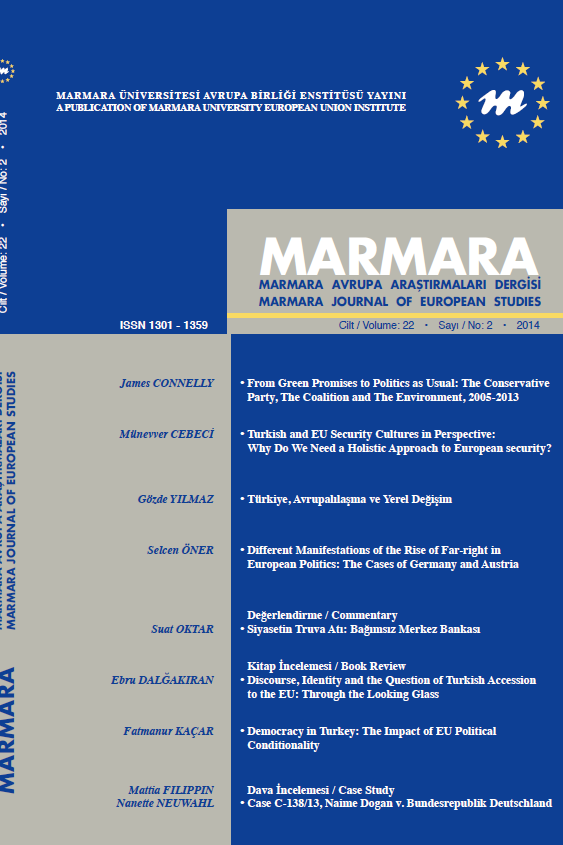GERMANY: HOW TO MANAGE BREXIT WHILE TRYING TO SAFEGUARD EUROPEAN INTEGRATION
Brexit, Germany, United Kingdom, European Union, Single European Market, budget, environmental policy, foreign policy, Franco-German alliance, reluctant hegemon
___
- Wurzel, R.K.W. (2002) Environmental Policy-making in Britain, Germany and the European Union (Manchester: Manchester University Press).
- Wurzel, R.K.W. (2008a) “Environmental policy: EU Actors, Leader and Laggard States”, in J. Hayward (ed.), Leaderless Europe (Oxford: Oxford University Press), pp.66-88.
- Wurzel, R.K.W. (2008b) The Politics of Emissions Trading in Britain and Germany (London: Anglo-German Foundation).
- Wurzel, R., Connelly, J. and Liefferink, D. (eds) (2017) The European Union in International Climate Change Politics. Still Taking a Lead? (London: Routledge).
- ISSN: 1301-1359
- Yayın Aralığı: Yılda 2 Sayı
- Yayıncı: Marmara Üniversitesi
A CATHARSIS OF THE UNITED KINGDOM’S POLITICAL AND ECONOMIC LANDSCAPE: POST BREXIT
ON THE AGENDA? THE MULTIPLE STREAMS OF BREXIT-ERA UK CLIMATE POLICY
Jeremy F.g. MOULTON, James SİLVERWOOD
NOT ANOTHER THING: FOUR REFERENDUMS AND A BREXIT VOTE
BREXIT AND THE FIGHT AGAINST HUMAN TRAFFICKING: ACTUAL SITUATION AND FUTURE UNCERTAINTY
GERMANY: HOW TO MANAGE BREXIT WHILE TRYING TO SAFEGUARD EUROPEAN INTEGRATION
BRITISH GENERAL ELECTION 2017: IT’S THE ECONOMY, STUPID!
DRIFTING AWAY: UNDERLYING CURRENTS OF BREXIT
BREXIT: WE’LL CROSS THAT BRIDGE WHEN WE COME TO IT
